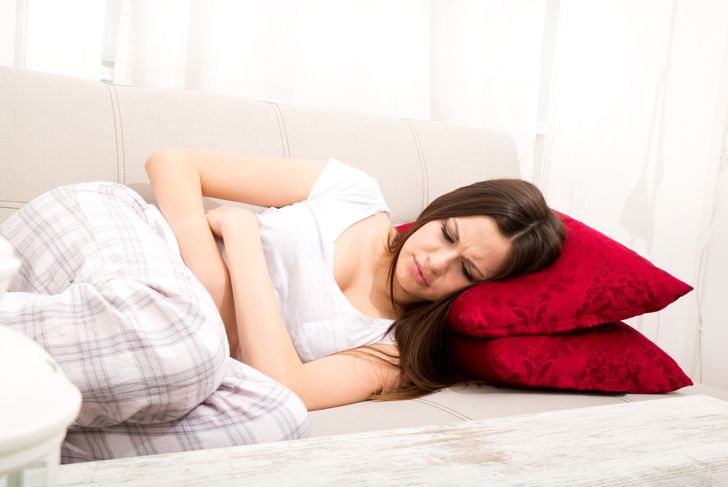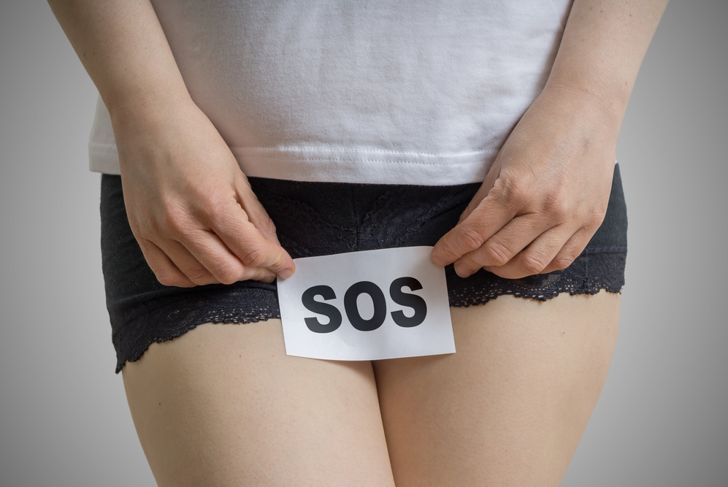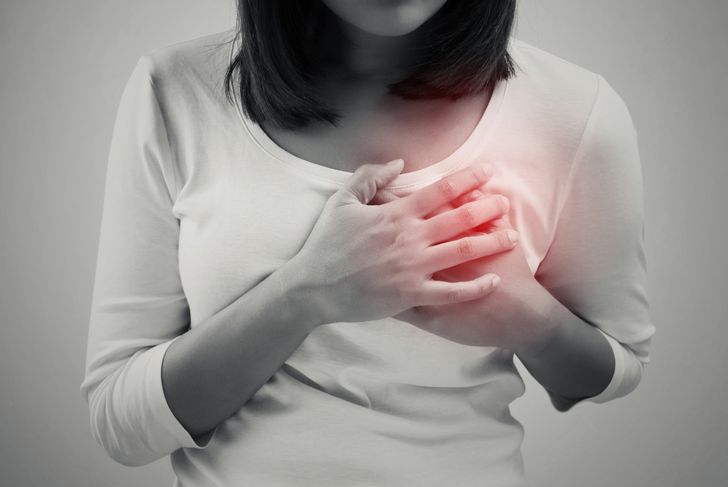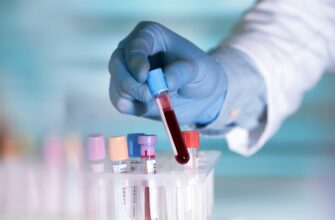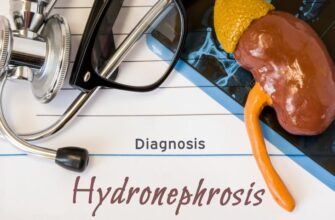Perimenopause occurs when the body begins transitioning into menopause. For most women, this starts in their 40s, but it can begin earlier, as well. During this time, the ovaries gradually start producing less estrogen, which causes slight hormonal imbalances while the body adjusts. Perimenopause can last up to ten years, though most women experience the related symptoms for around four years. Once menopause begins, perimenopause is officially over.
Irregular Periods
For many women, irregular periods are the first sign they’re entering perimenopause. They may begin to skip a month here or there. Sometimes the period itself changes, becoming lighter and shorter or, in some cases, heavier and longer. Changes in the frequency or intensity of a period can also indicate pregnancy, so when these symptoms first begin, many women visit the doctor to confirm the cause. Menopause does not officially begin until a woman has missed 12 consecutive periods.
Migraines
Many factors can lead to migraines, including abnormal brain activity, certain odors, missed meals, stress, exercise, and exposure to light. Migraines related to perimenopause are due to the decrease of estrogen, which is also what usually causes migraines related to the menstrual cycle. Menstrual-cycle-related migraines are typically only experienced by women prone to getting migraines. But because estrogen fluctuates during perimenopause, even women who have never before experienced a migraine may get one during this time.
Hot Flashes and Night Sweats
The reason women in perimenopause experience hot flashes is unknown, though many experts suspect the drop in estrogen disrupts the body’s internal thermostat. This causes the brain to misread bodily signals and initiate a cool-down mode when it is not necessary. Hot flashes can cause the skin to literally heat up, and may also lead to sweating. The latter helps cool the body back to its proper temperature. Approximately 75% to 80% of women in perimenopause experience hot flashes. While they are uncomfortable, they usually only last for up to ten minutes at a time. For some women, hot flashes only come in the form of night sweats, which can disrupt sleep.
Low Libido and Changes in Sexual Desire
During perimenopause, sexual arousal and desire may change. Most women report decreased libido during perimenopause, but some studies show women with healthy sex drives before perimenopause could experience a slight increase in their sex drive.
Mood Swings
Intense mood swings, anger, and feeling “on edge” are some of the earliest signs of perimenopause and can begin even before changes in the [menstrual] cycle begin. Nearly 40% of women have mood swings associated with hormonal changes. These range from feelings of rage to intense moodiness, anxiety, and crying spells. Studies show the risk of depression doubles when women enter perimenopause, and those with a history of extreme PMS or postpartum depression are at greater risk.
Weight Gain
Unfortunately, weight gain in the perimenopausal years is well-documented. In such cases, fat does not distribute evenly; instead, hormones cause excess weight to settle in the abdominal area. Carrying extra pounds on the waistline is linked to insulin resistance, which leads to a greater chance of heart disease and many other health problems. Over time, the percentage of lean muscle mass in our body decreases, which results in a reduced ability to burn calories. For this reason, it is essential that women stay active and maintain healthy diets, both leading up to and during perimenopause.
Cognitive Problems
Perimenopausal women may find it difficult to concentrate and focus on tasks. Almost 60% experience short-term memory loss, difficulty learning and remembering details, and trouble maintaining attention. During perimenopause, women may forget things more often or misplace everyday items such as their keys. The effect is temporary; cognitive function generally returns to normal post-menopause.
Vaginal Dryness
The drop in estrogen during perimenopause leads to vaginal atrophy — the drying and thinning of vaginal tissues. Some women equate this symptom with sexual inadequacy or dysfunction, but it is a natural reaction to hormonal changes that precede menopause. Women experiencing vaginal dryness can turn to creams and gels to maintain their regular sex life.
Breast Tenderness
Breast pain is a common complaint among perimenopausal women. Hormonal changes lead to water retention, which causes the breasts to feel heavy and sore to the touch. To reduce discomfort, women can try cutting back on caffeine and fat intake, taking pain relievers, and applying cold or hot compresses. Consult with a physician before taking pain relievers for breast tenderness, as long-term use may have health risks. Wearing a more supportive bra during the day or while sleeping can also ease pain.
Urinary Incontinence
Some women going through perimenopause find it harder to control their bladders. Like vaginal tissue, the muscle tissue in and surrounding the bladder and urethra requires estrogen to remain strong and supple. When estrogen levels drop during perimenopause, the muscle tissue around the bladder and urethra thin, which can lead to incontinence. Kegel exercise can strengthen the pelvic muscles, provide structural support to the bladder, and help close the urethra. Estrogen therapy may also help.
Sleeping Problems
Sleeplessness is one of the most common symptoms of perimenopause. A drop in estrogen and progesterone levels during perimenopause may be partially responsible for sleep problems. Also, some women have a hard time sleeping due to night sweats. If that’s the case, talk to your physician. Hormone replacement therapy (HRT) or sleeping pills may help alleviate insomnia. Other options include melatonin supplements, daily exercise, and meditation.

 Home
Home Health
Health Diet & Nutrition
Diet & Nutrition Living Well
Living Well More
More